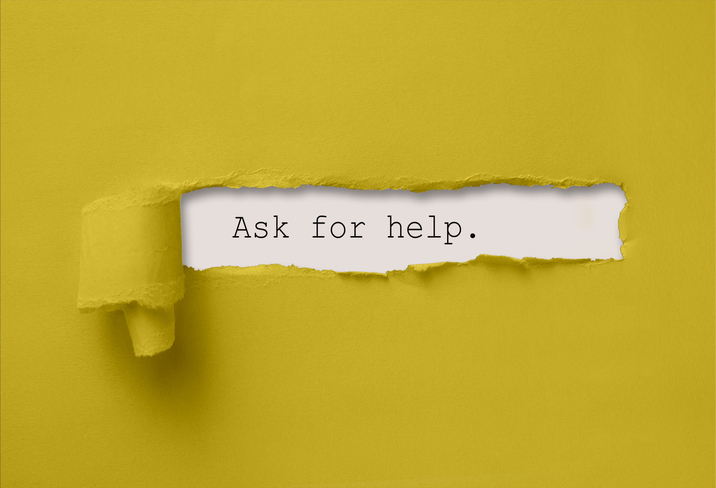 Faking your way through the day and pasting on a smile may feel like the best way to handle your sadness and frustration. After all, sharing that you're struggling can open a can of worms that you're not ready to handle.
Faking your way through the day and pasting on a smile may feel like the best way to handle your sadness and frustration. After all, sharing that you're struggling can open a can of worms that you're not ready to handle.
However, going it alone is not the easy road it seems like. Without people in your life to talk to about problems and situations, you often end up repeating the same cycles. You may go back to the same abusive relationship, turn to substances to numb the pain, or collapse into a pile of tears creating a well so deep, you can't find the way out.
Some people choose to see a therapist to combat their challenges. While this can be helpful for many, others can't afford to pay someone by the hour to listen to them vent. You may also feel that your therapist doesn't really know you and it takes time to form a relationship where you can trust them and their advice.
That's why it may make more sense to reach out to other people who have been there for you in the past, or create new relationships with people who will be there for you in the future.
Are you on board with the idea of asking for support, but don't know the right way to reach out? Let's talk about some of the strategies you can use to start the conversation.
Some people choose to use their social media accounts to share updates about their life. While most people only post in times of positivity, others flock to their feed when they are feeling down and desperate.
If you're going to use social media to find people to support you, first clean up your friend's list. Go through and delete everyone who you already know hasn't been there for you. While you're at it, unfollow the people whose status updates trigger you.
Once you've gotten your online house in order, it's time to craft a post that will let the people left know you are in need of support. It's best to start off with something simple, like writing, "I need someone to talk to right now, I'm not in a good place. If you have time to listen, please message me."
With a status like this, people won't be running to their phones to call 911 and send the cops to your door for a wellfare check.
You'll probably be surprised to see who reaches out. If your experience is anything like mine, you'll get messages from people you haven't talked to in years rather than the ones you thought were closest to you. Use the opportunity to your advantage and share about what you are going through.
If noone messages you, don't let it get to you. While you may feel like its the world's way of telling you that noone cares, that's far from the truth. You never know the reasons someone else might have for not responding.
Instead, do a search for support groups on Facebook. You don't have to join just a blanket support group of people. Instead, search for groups that are attached to a band that you like.
For example, my favorite support group on Facebook is ‘Bumpin' Sobriety Ain't Ugly' which is attached to my favorite band, Bumpin' Uglies. When I post in there, I get comments from people all over the country who relate to the same music as me and also can understand the struggle of fighting for your sobriety.
There are two different types of conversations that you can have when you're upset. The first is where you just need someone that will let you vent. You can tell them all of your problems and they will respond with supportive statements that make you feel validated.
While these types of conversations can feel helpful, particularly when you are mad, an even better type of conversation is when the person you are talking to chimes in with their own suggestions, advice, and experience.
If you want to be able to talk to someone who will offer to help you, you have to be willing to listen to their suggestions. As hard as it may be, you should look for the truth in their statements and find value in what they are saying.
If you aren't getting what you need from the conversation, then it's time to continue your search elsewhere. Not everyone will know how to help you, but out there somewhere is a mentor that you can trust to guide you on your journey. Just keep looking and adding people to your circle of support until you feel like you always have someone to call.